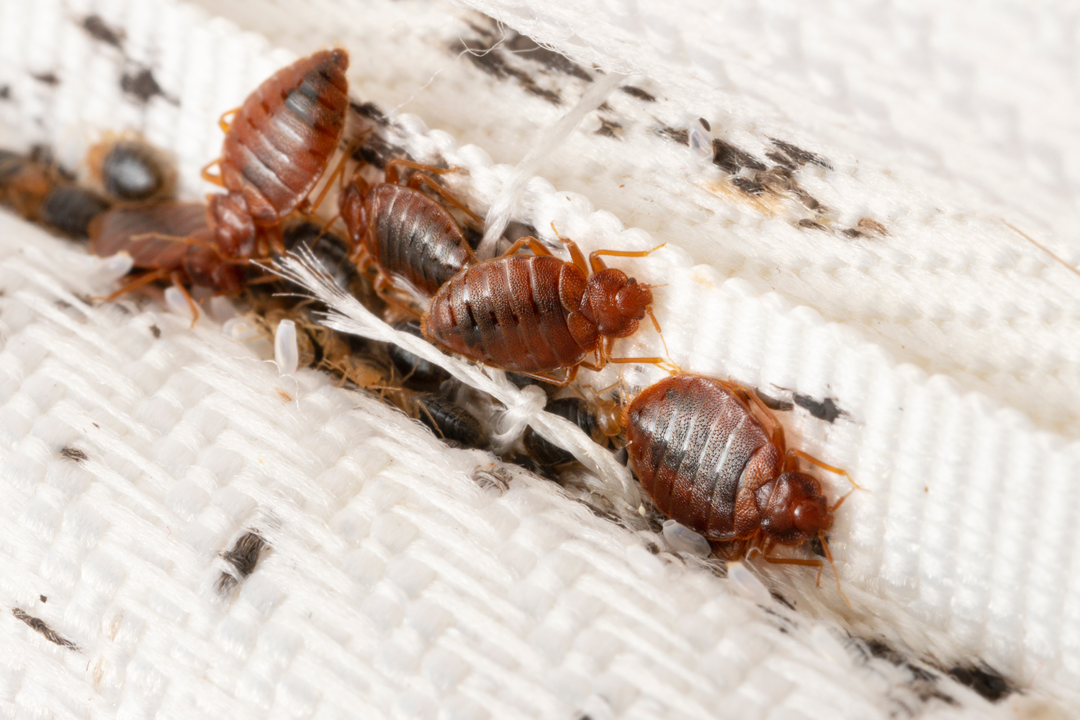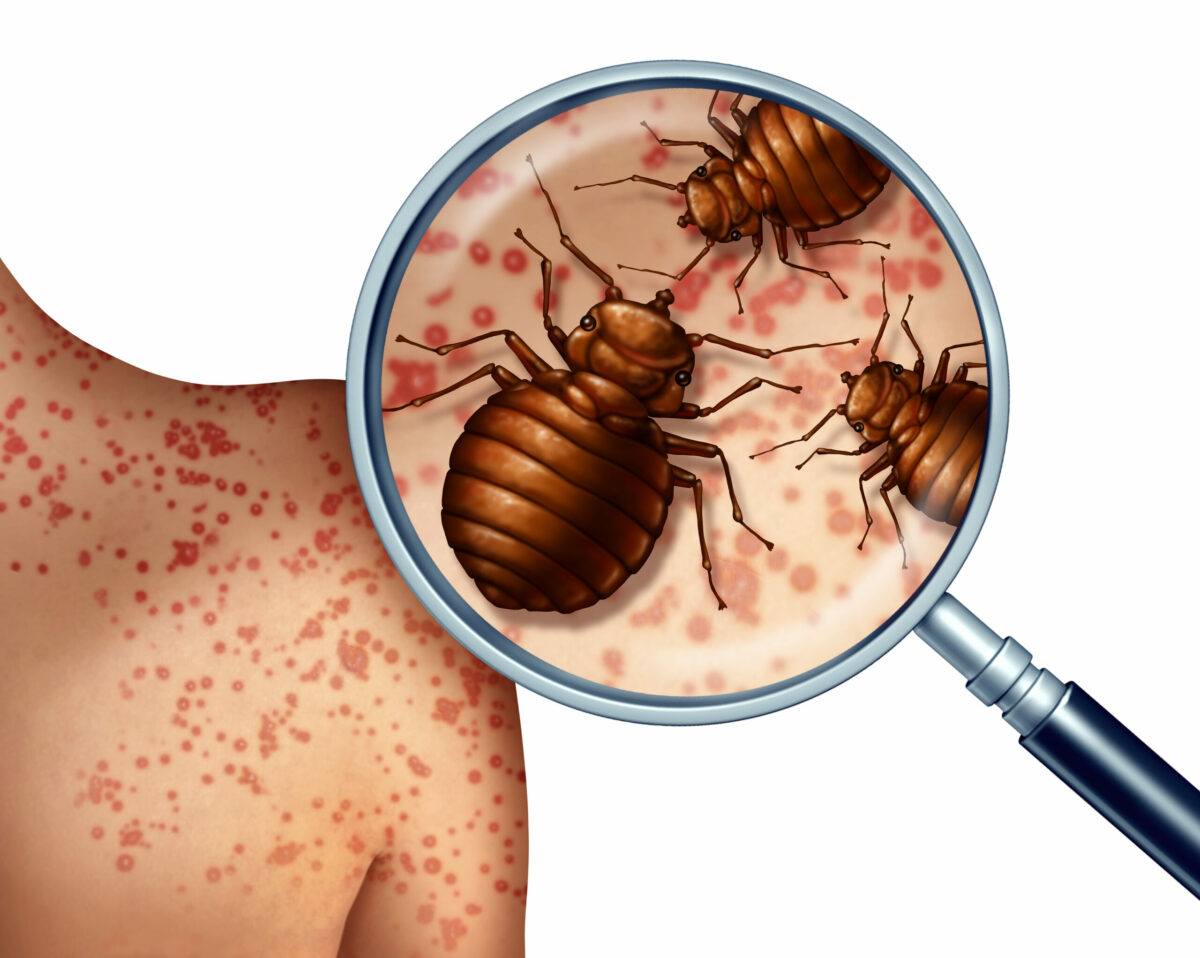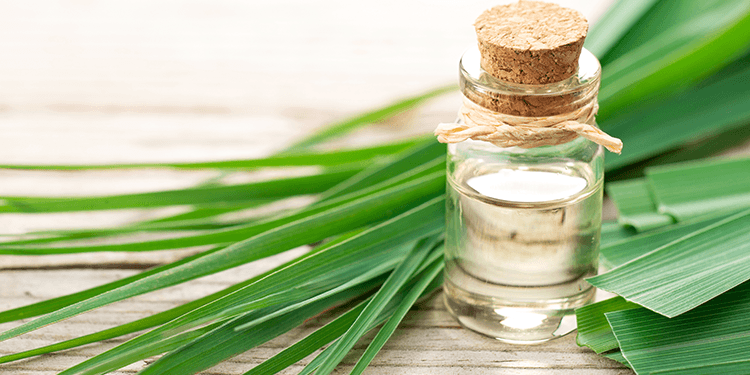Bed bugs are a common and frustrating problem for many households, causing itchy bites and affecting our ability to get a good night’s sleep. Conventional treatments often involve harsh chemicals that may not be suitable for those seeking a more natural solution. One alternative method that has gained attention is using lemongrass oil to combat bed bug infestations.
Lemongrass oil is derived from the lemongrass plant, and its natural properties have been shown to be effective in repelling and killing bed bugs. As more people become interested in eco-friendly and non-toxic solutions for various issues, harnessing the power of lemongrass oil for bed bug control offers a promising solution that aligns with these values.
Key Takeaways
- Lemongrass oil is a natural alternative to conventional bed bug treatments
- Effective application involves proper dilution and combining with other essential oils
- Prevention and care for bed bug bites are also crucial aspects of addressing infestations
Understanding Bed Bugs
We all know how frustrating and uncomfortable it can be to deal with bed bugs. These tiny, wingless insects feed on human blood, and their bites can cause itchiness and other skin irritations. Bed bugs can spread through various items like mattresses, bedding, furniture, carpets, curtains, and upholstery. They are experts at hiding in small crevices and cracks, making it challenging to detect and eliminate them. For more on bed bugs, check out our article The secret life of bed bugs.
Bed bugs are nocturnal insects; they’re active at night when we’re asleep, making it easier for them to sneak up and bite us. They tend to reside in close proximity to their food source – that is, us – and can often be found in the seams of our mattresses, bed frames, and box springs.
Our first step in dealing with bed bugs should be understanding their life cycle. These pesky insects start as eggs, which are tiny and difficult to see. After hatching, the immature bed bugs (or “nymphs”) will go through five molting stages before reaching adulthood. They need a blood meal before each stage, making us their primary target.
One thing we should be aware of is that bed bug infestations are not directly related to cleanliness. These resourceful pests can thrive in both clean and dirty environments, as long as they have access to a human host. However, maintaining good sanitation practices can help reduce the number of hiding spots available to bed bugs and make it easier to spot an infestation early on.
In conclusion, understanding bed bugs’ behavior, life cycle, and habitat preferences can help us tackle the problem more effectively. With this knowledge, we can look for natural solutions like using the power of lemongrass oil to repel and combat these unwelcome guests in our homes.
The Problem with Conventional Treatments
As we explore alternatives for dealing with bed bugs, it’s important to understand the issues associated with conventional treatments. Many of these methods involve using pesticide or insecticide products, which can be problematic for various reasons.
First off, chemical pesticides and insecticides often contain toxic chemicals that might not only be harmful to bed bugs but also to us and our environment. When an exterminator applies these treatments, they may leave residues that linger in our living spaces. This can potentially lead to health problems, especially for those with allergies, respiratory issues, or compromised immune systems.
In addition, the overuse of chemical insecticides has contributed to the development of insecticide-resistant bed bugs. This means that these bugs have adapted to the chemicals used to control them, rendering some treatments less effective over time. It doesn’t help that eradicating bed bugs can be quite challenging, requiring multiple treatments and extensive cleaning efforts. This combination of insecticide resistance and complex control measures can become both time-consuming and costly.
That’s where natural solutions, like lemongrass oil, come into play. By harnessing the power of natural ingredients, we can minimize our reliance on toxic chemicals and reduce the risk of creating insecticide-resistant bugs. Plus, natural alternatives often have fewer side effects on our health and the environment. So, while conventional treatments have their place in controlling pests, it’s vital to consider the pros and cons and explore more sustainable options, like lemongrass oil, for bed bug control.
The Power of Lemongrass Oil
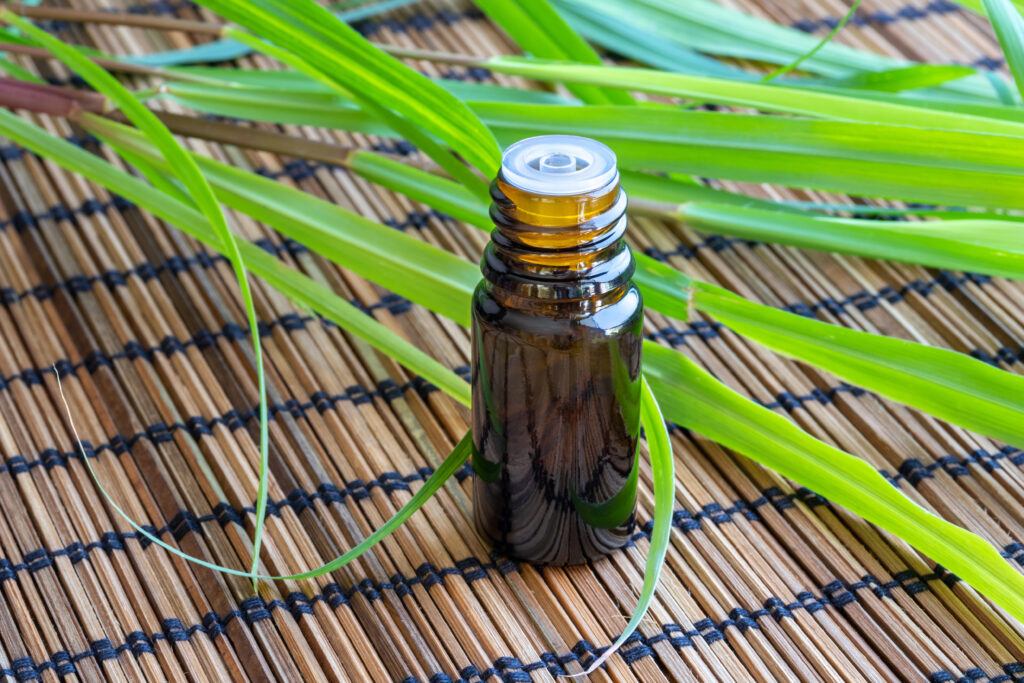
We’ve all heard about the amazing benefits of essential oils, and lemongrass oil is no exception. This natural oil, extracted from the lemongrass plant, has a lovely, refreshing scent that can help keep bed bugs at bay in a gentle and earth-friendly way.
One of the greatest aspects of lemongrass oil is its antimicrobial properties. This means that it can help prevent the growth of bacteria and fungi, which are often culprits when it comes to attracting bed bugs. By adding a few drops of lemongrass oil to water and spraying it on our bedding or even using it as a room freshener, we can create a protective barrier against these pesky critters.
In addition to its antimicrobial benefits, lemongrass oil is known for its healing properties. While we hope that we never have to experience the discomfort of bed bug bites, the reality is that they can happen. In these situations, lemongrass oil’s anti-inflammatory qualities can help soothe irritated skin and speed up the healing process.
Using lemongrass oil as a natural bed bug solution is simple. All we need to do is mix a few drops of the oil with water in a spray bottle and lightly mist our bedding, curtains, carpets, and other surfaces where bed bugs might be lurking. The pleasant scent of lemongrass not only creates a welcoming environment for us but also helps deter bed bugs from taking up residence in our living spaces.
In summary, lemongrass oil is a fantastic and natural way to protect our homes from bed bugs. Its antimicrobial properties, soothing nature, and appealing scent make it a powerful ally in keeping our living spaces safe and comfortable.
Dilution and Application Methods
We’ve discovered that lemongrass oil can be a fantastic natural solution for dealing with pesky bed bugs, so let’s explore some dilution and application methods to get the maximum benefit from this little miracle-worker.
First off, we want to ensure that we’re using the oil safely and effectively, so it’s essential to dilute the lemongrass oil with a carrier oil before application. We recommend a ratio of 10 drops of lemongrass oil per ounce of carrier oil, such as almond or grapeseed oil. Mixing the lemongrass oil with a carrier oil ensures that it’s safe for use on skin, fabric, and other surfaces.
Now that we have our diluted solution, let’s talk about how to apply it. One of the most convenient and effective methods is using a spray bottle. Simply fill a spray bottle with the diluted lemongrass oil solution and take aim at the areas you’ve noticed bed bug activity. Be sure to spray liberally on bedding, mattresses, and any cracks or crevices that might be hiding those little buggers.
With the lemongrass oil solution in hand, don’t be afraid to add a little extra punch to your bed bug-fighting arsenal. For instance, you could:
- Create a sachet with dried lemongrass leaves and a few drops of the lemongrass oil solution to place between sheets or inside pillowcases.
- Add a few drops of the solution to laundry loads (particularly bed linens) for an extra layer of protection.
We’ve now armed ourselves with a fantastic natural bed bug solution using the power of lemongrass oil. Remember to always dilute the essential oil with a carrier oil, and don’t be afraid to get creative with your application methods. Happy bed bug battling!
Lemongrass Oil and Other Essential Oils
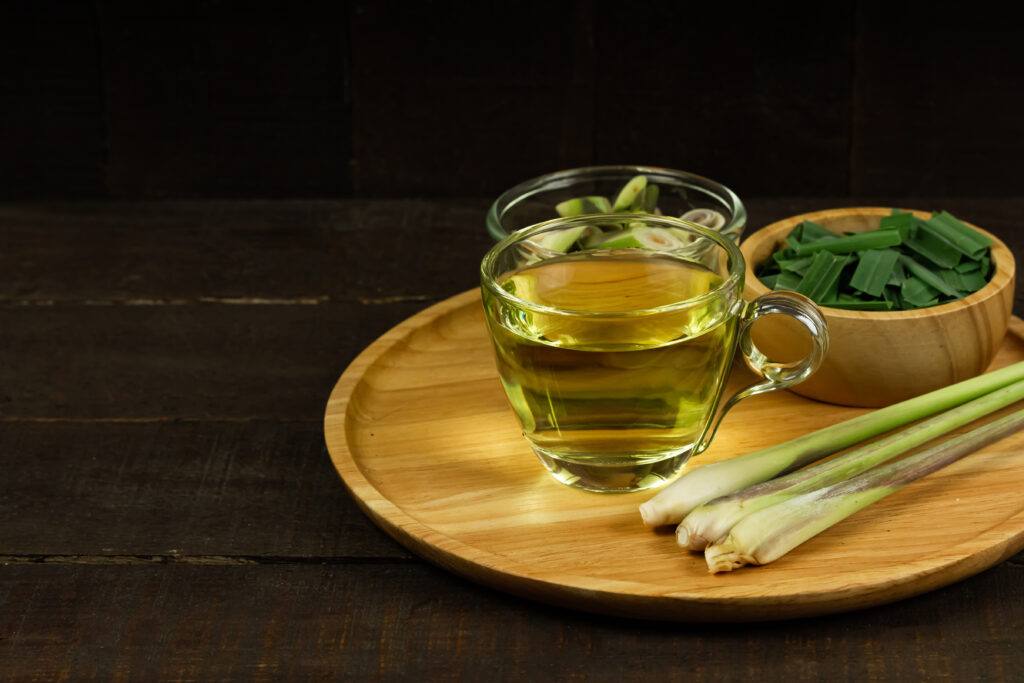
We all know how pesky bed bugs can be, and finding natural solutions to get rid of them is something we’re all interested in. One such solution is harnessing the power of lemongrass oil, an essential oil known for its powerful effects in repelling insects. But lemongrass oil isn’t the only essential oil that can help in this battle; there are several others worth mentioning.
Tea tree and lavender oils are popular choices in the fight against bed bugs. Tea tree oil is renowned for its antimicrobial and antifungal properties, while the soothing scent of lavender oil has been found to help in repelling not only bed bugs but also other insects like moths and mosquitoes. Mint oil, such as peppermint and spearmint, has a fresh and invigorating smell that irritates and repels bed bugs, making it another effective option.
Another group of essential oils known for their bug-repellent properties includes citronella, eucalyptus, and rosemary oils. Citronella oil is a common ingredient found in mosquito-repellent products, while eucalyptus oil is known for its ability to deter a wide range of insects, including bed bugs. At the same time, rosemary oil provides a potent and refreshing scent that helps to keep these unwanted pests at bay.
Some lesser-known essential oils also pack a punch when it comes to repelling bed bugs. For example, blood orange oil provides a citrusy aroma that keeps bed bugs away. Thyme and oregano oils are strong-smelling, and their intense fragrance can help to ward off bed bugs. Clove oil, neem oil, and silicone oil all have insect-repellent properties as well, giving you a variety of options to choose from in your battle against bed bugs.
In conclusion, lemongrass oil is a powerful ally in the fight against bed bugs, but it’s not the only essential oil that can be harnessed for this purpose. We’ve discussed numerous other essential oils, like tea tree, lavender, mint, citronella, eucalyptus, rosemary, blood orange, thyme, oregano, clove, neem, and silicone oils, which have their unique properties and can be used in combination to create an effective, natural bed bug repellent. So let’s continue exploring the world of essential oils and their countless applications to make our lives more comfortable and bug-free!
Preventing Bed Bug Infestations
Luckily for us, lemongrass oil is a natural solution that helps to prevent bed bug infestations. The oil can be easily incorporated into our daily routines and has been proven to deter these pesky critters.
One simple method to use lemongrass oil is by adding a few drops to a spray bottle with water and lightly misting our mattress, bedding, and surrounding areas. This will help create an unwelcoming environment for bed bugs, deterring them from settling in and causing a problem.
In addition to using lemongrass oil, there are other preventative measures we can take to limit the risk of bed bug infestations:
- Vacuum regularly: By regularly vacuuming our home, especially our bedroom, we can pick up any stray bed bugs, drastically reducing our chances of an infestation.
- Wash bedding in high heat: Washing our bedding in hot water will help kill any bed bugs that might be hiding within. Additionally, running our sheets and blankets through a high-heat dryer cycle will further ensure their demise.
- Steam cleaning: Using a steam cleaner on our mattress, upholstery, and carpets is another great way to eliminate bed bugs at all stages of their life cycle.
Prevention is the best way to avoid a bed bug problem, but it’s also essential to know the symptoms of infestation. This way, we can quickly identify and address any issues that may arise. The most common signs of bed bug infestations include small red, itchy bites on our skin, tiny black or brown “pepper-like” droppings, and the presence of shed bug skins.
By incorporating lemongrass oil and following these prevention tips, we’ll be well on our way to keeping our homes free from bed bug infestations. Remember, it’s always easier to prevent a problem than to deal with it after it has taken root.
Home Remedies and Natural Alternatives
We understand how frustrating it can be to deal with bed bugs, but worry not, because we have a few simple home remedies to help you combat these pesky insects. One natural alternative is to harness the power of lemongrass oil. This essential oil is known for its potent insecticidal properties, which can help repel and kill bed bugs.
Besides lemongrass oil, there are other natural remedies that you can try as well. For instance, diatomaceous earth is a non-toxic option that effectively kills bed bugs by damaging their exoskeletons. Simply sprinkle the powder around the affected areas, and the bed bugs won’t stand a chance.
Another option is baking soda, which can absorb fluids on the bed bugs’ outer shell, effectively drying them out and causing dehydration. Spread a generous amount of baking soda on and around your bed, and vacuum it up after a few days.
In addition to powders, rubbing alcohol has been shown to be somewhat effective against bed bugs. However, proceed with caution while using alcohol, as it is a flammable substance. Mix equal parts rubbing alcohol and water in a spray bottle and apply it to any infested areas. Keep in mind that this method may not be as effective as other alternatives, but it’s worth trying in a pinch.
Overall, we believe that natural remedies and home solutions like lemongrass oil, diatomaceous earth, baking soda, and rubbing alcohol can be useful in dealing with bed bugs. These non-toxic alternatives offer an environmentally friendly solution without exposing you and your loved ones to harmful chemicals. So, the next time you encounter bed bugs, give these natural remedies a try and reclaim your peaceful slumber.
Lemongrass Oil vs Other Pests

We’ve discovered that lemongrass oil can be a powerful natural solution for bed bugs, but what about other pesky pests? Well, good news everyone, it seems that lemongrass oil is also effective against a variety of other insects! Let’s explore its potential uses against a few common household pests.
First off, let’s talk about ants. Tired of those little critters crawling around in your kitchen or your picnic? We’ve found that lemongrass oil can work wonders as an ant repellent. Just mix a few drops of the oil in some water and spray it on surfaces where ants tend to gather. The scent is not only pleasant for us, but also helps keep ants at bay.
Now, let’s move on to fleas. If your furry friends are constantly scratching, it’s likely that fleas are the culprit. But fear not, lemongrass oil can come to the rescue! Adding a few drops of this miraculous oil to your pet’s shampoo can help repel fleas and keep your pets happy and itch-free. Remember to dilute the oil and never use it undiluted on your pets.
Cockroaches can be one of the most repulsive and stubborn pests around. Thankfully, lemongrass oil can help in the battle against these unwelcome guests too. Mixing a few drops of oil with water in a spray bottle and applying it to cracks, crevices, and dark corners around your home can help deter these creepy-crawlies. Cockroaches can’t stand the smell and will look for less fragrant environments to invade.
Mosquitoes can be a real nuisance, especially during warm, humid nights. No one wants to be kept awake by their irritating buzzing and the itchy bites they leave behind. Luckily, lemongrass oil serves as a useful mosquito repellent too! Mixing it with a carrier oil (like almond or coconut oil) and applying it to exposed skin can help prevent bites and enjoy some peace and quiet in the great outdoors.
Overall, it’s quite clear that lemongrass oil can be our trusty ally against a wide range of annoying pests. Whether it’s ants, fleas, cockroaches, or mosquitoes, harnessing the power of this natural solution can help keep our homes and lives bug-free! So the next time you’re facing a pest problem, don’t reach for the chemical bug sprays – just give lemongrass oil a try!
Caring for Bed Bug Bites
Oh no, seems like those pesky bed bugs got us! Don’t worry, though. We’ve got the perfect remedy for those itchy, bothersome bites – lemongrass oil. This essential oil is not only great for keeping bed bugs away but also for soothing those irritating bites.
First things first, we need to take care of the itchiness and rash. Dab a cotton ball into a mixture of few drops of lemongrass oil and a carrier oil (like coconut or almond oil). Gently apply it to the affected areas on our skin. The cooling properties of lemongrass oil will help ease the itch and reduce inflammation.
However, we should be cautious about resisting the urge to scratch those bites, because scratching can lead to infection. If the skin around the bed bug bites looks red and inflamed, let’s add a couple of drops of lavender oil to the cotton ball with lemongrass oil for extra healing benefits.
Now, let’s discuss those pesky stains that bed bug bites may leave behind. While lemongrass oil doesn’t directly remove stains, it can help improve our skin’s appearance. Some essential oils, like lemon oil, have natural skin lightening properties. We can mix a few drops of lemon oil with our lemongrass oil solution to help fade any discolored spots left by the bites.
Lastly, it’s essential to keep the affected area clean to avoid infection. We recommend washing the areas with mild soap and water then fully drying before applying our lemongrass oil mixture. Remember to change the sheets and linens frequently, ensuring these pesky insects have no place to hide.
With the natural power of lemongrass oil aiding in soothing our bed bug bites and avoiding further complications, we can rest a little easier knowing we’re taking care of ourselves the best way possible.
Conclusion: A Natural Solution for Bed Bugs
We’ve explored the benefits of using lemongrass oil as a natural solution for bed bugs. It turns out that this simple, eco-friendly option is effective in killing and deterring these pesky insects.
Lemongrass oil contains compounds that can effectively break down the exoskeleton of the bed bugs, making it an excellent natural way to get rid of them. This method is not only effective in killing bed bugs but also poses fewer health risks compared to harsh chemicals and insecticides.
A stiff brush can be used to scrub the seams of mattresses, bed frames, and other hiding places to dislodge the bed bugs and their eggs. This physical removal, combined with the lemongrass oil, helps to ensure that these invasive pests are eradicated from your home.
Another advantage of using lemongrass oil is its ability to suffocate bed bugs. When the oil is applied to their hiding places, the bugs become trapped, and the oil clogs their respiratory systems, leading to suffocation and death.
Lastly, lemongrass oil is an excellent deterrent for bed bugs. Its strong scent creates an unfavorable environment for these insects, preventing them from making their way back into your home. Spray the oil onto surfaces where bed bugs are likely to hide, such as curtains, carpets, and linen closets, to keep them at bay.
In conclusion, lemongrass oil is a powerful, natural solution to help us get rid of bed bugs and keep them away. It’s a safe, eco-friendly, and cost-effective method that we can all incorporate into our pest control strategies.


